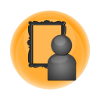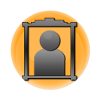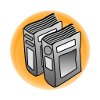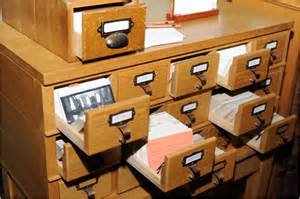Database software
In the past accessioning was done in a register and documentation dones on index cards. Computerisation has dramatically changed this and most collections are either computerised or in the process of becoming so.
Museums, archives, etc. need to consider a number of aspects with regard to computerisation of documentation and collection management. It is essential that the correct database software be acquired that will not only fulfill the necessary tasks but also comply with various international software standards and trends.
Below are some of the main aspects to consider before acquiring database software:
- Scalability: accommodate the growth, and access, to the collection.
- Development tools: use the latest, but appropriate, software development tools available.
- Open connectivity: use the international standards of data exchange (i.e. ODBC, ADO, XML, etc.).
- Documentation standards: adhere, as close as possible, to various national and international documentation standards, i.e. CIDOC(ICOM) and Dublin Core (CIMI)..
- Relational database: much more efficient and minimizes duplication of data.
- Upgrades: released on a regular basis and easy to install.
- Keep pace with IT trends: do not chase technology, but do not lag behind technology.
- Support: various levels of training and support.
- Online help: the product should offer an online help manual.
- Imaging: view and manage digitised images.
- Affordability: affordable and appropriate.
- Networkability: offer networking options.
- Backing-up data: offer back-up options.
- Database integration: integrate with other software.
- Accessibility: database available to other staff.
- Intranet and Internet: accommodate intranet and internet options.
- Used worldwide: software platform needs to be used worldwide (products like Microsoft® Access).
- System requirements: function adequately on a normal market entry computer - but must be scalable.
Development, upgrades, support
Development platform
Software development platform is based on Microsoft® Access and Visual Basic and utilises Office 2000, XP (2003), 2007, 2010 and 2013 components. All products run on the Microsoft® Windows platform.
Upgrades
Upgrades are included in the licenses at no additional cost.
Training and support
Training and support is available, on-site, online, via email and telephone.
Help manuals
A Generic Help Manual (help on installation, backing-up data, restoring data, etc.) is provided via the Logos Flow website. Plus, help on specific products.
Editions
Most products are available in two editions: a Full Edition (can add and edit data); and, a User Edition (cannot add and edit data).
Licensing and community of users
The main reason for Logos Flow offering a license service is to provide an efficient support service and upgrade process.
Upgrading is integral to Logos Flow's strategy as we can supply continuous improvements to the products and keep up-to-date with various trends, both in your area and general software development.
Also, via upgrading, you receive improvements through the suggestions of others who are using the same product. In this way we can include you in the development and invite you to send you comments and suggestions.
Below are details of the license service:
- You will automatically receive version upgrades as Logos Flow™ makes them available.
- Free email, Internet and telephonic support.
- We will keep track of all the products, versions and licenses that apply to your organisation.
- We will notify you in advance when your subscriptions are due which will simplify the budgeting and tracking of licenses.
- If you are using custom reports there will be no additional charge to include them in an upgrade.
- You will receive information on products, services and projects that apply to your organisation.
|

HumanitiesCMD
The product used by museums, universities, corporates, private, municiple, national, ...

CollectorsMD
The product used by fine art / antique dealers, consultants and galleries.

ResourceMD
The product used by libraries, archives and resource centres.
Documentation:
The act or an instance of the supplying of documents or supporting references or records.
Source: TheFreeDictionary

Example of an old card index
|